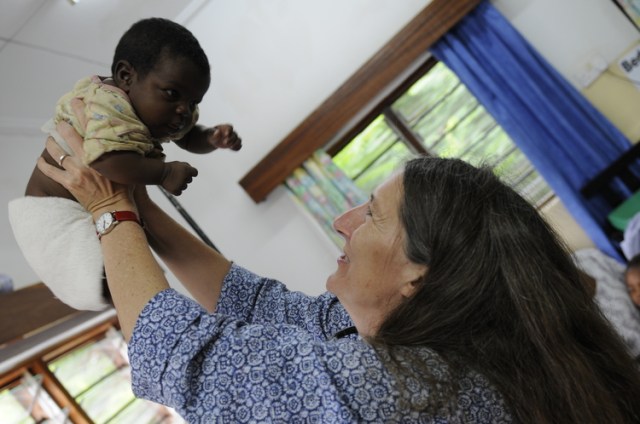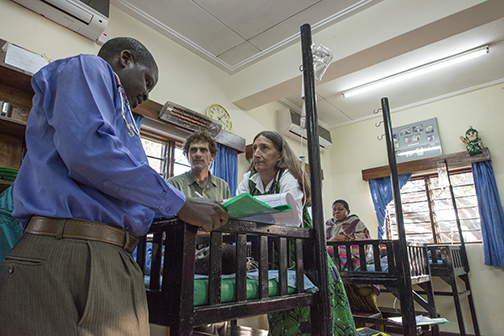BTN.com staff, April 9, 2015
A series that covers the true revolutionaries, Game Changers explores how innovators from Big Ten universities - students, faculty and alums - are inventing or reinventing their chosen fields.
 Someday, the scourge of malaria among African children will be more or less wiped out. And when that day comes, there?s a good chance we?ll have Michigan State professor Terrie Taylor to thank.
Someday, the scourge of malaria among African children will be more or less wiped out. And when that day comes, there?s a good chance we?ll have Michigan State professor Terrie Taylor to thank.
For nearly three decades, she?s spent six months a year in Malawi treating the overwhelming number of kids who have the mosquito-borne blood disease. During most of that time, it was a struggle. But new discoveries stemming from Taylor and her team have given hope to the region.
Those findings, which were recently published in the New England Journal of Medicine, hold the key to determining which patients are susceptible to cerebral malaria, a much more life-threatening form of this disease.
?We slowly just started peeling away at various layers of the disease,? she said. ?Now we realize that brain-swelling is important in the children that die and [understanding] how we intervene.?
By gaining access to an MRI - as well as the ability to conduct autopsies on recently deceased patients - Taylor and a team of more than 100 researchers and doctors demonstrated that swelling in the brain caused many patients to stop breathing.
That discovery gives Taylor a whole new path to explore in combating the disease.
?Without the MRI, we never would?ve captured the process,? she said. ?It was a very triumphant moment. I remember staring at the MRI and saying, ?Aha!??
Now that they know one of the problems is a swelling brain that blocks the ability to breathe, the team?s goals are to find out why that happens and, more importantly, keep patients breathing.
?I want to figure out why the brains are swollen and develop an effective treatment, whether it?s ventilators or something else,? Taylor said.
Despite the now-positive outlook, Taylor is well-aware that she?s still facing a formidable foe. The numbers are staggering: According to the World Health Organization, a child dies every minute of cerebral malaria in Africa. An estimated 219 million cases of malaria emerge around the world each year, and a million of those cases are lethal.
?The deaths are gut-wrenching,? Taylor said. ?But that?s why it?s important. Entire families, entire villages are affected.?
But fortunately, Taylor is a seasoned veteran in this fight. Her journey started back in 1983, when she joined the MSU staff and went to Sudan to do biomedical research.
[btn-post-package]?I was really looking for an adventure for a year,? she recalled. ?Immediately, it was obvious that biomedical research was needed. It was such early days that the questions were pretty straightforward. That was appealing to me. If you were prepared to be there, you could ask questions that had an impact.?
Taylor had what she calls an ?epiphany? about a year later - this was what she wanted to do as a career. And so she started her quest to make life better for countless children in Africa and all over the world.
Thirty years later, Taylor and her team have assembled a small army in the battle against malaria. They bring in 24 students a year to study, and they come in groups of eight so they can get maximum exposure to the techniques she teaches.
Part of that includes immersing themselves with each other. Michigan State bought a three-bedroom house where they all live.
?I teach an elective course, so they have some sense of what?s going on. It?s an amazing experience,? Taylor said. ?We have supper together, and they?re great.
?Most importantly, I can nip their ideas in the bud,? she added with a laugh.
She also praised Michigan State for providing an abundance of resources and tools to help with her research.
?It?s a great compliment to MSU that that they can do that each year,? she said. ?It?s an enlightened university,? she said. ?I cannot say enough about Michigan State from every level, from top to bottom. They?ve had my back the whole way.?
By Matthew Wood








